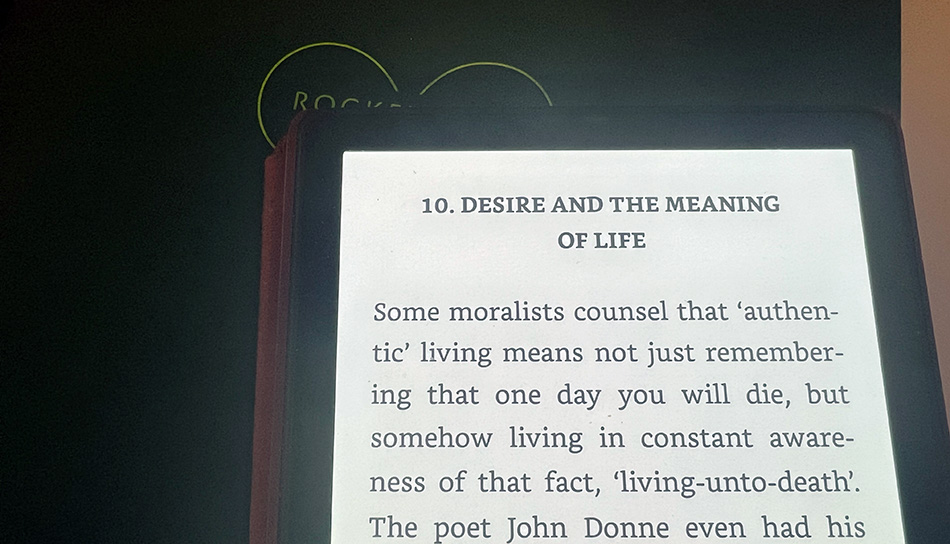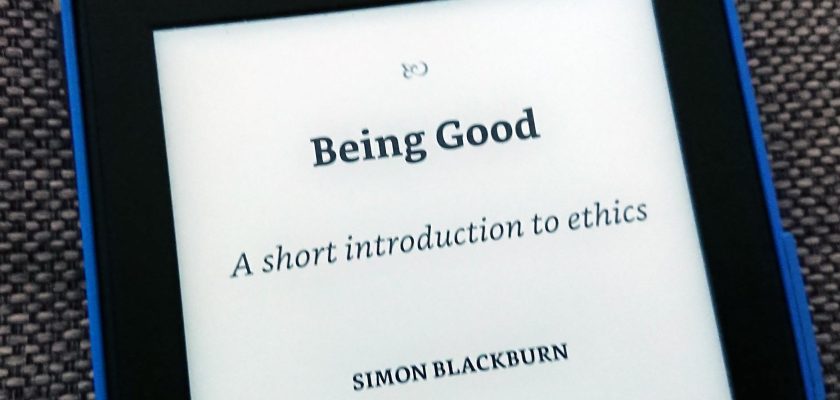If you are religious, you might find yourself at odds with what your religious texts tell you on how to live and what to think concerning some moral issue. This might not happen that often, but I bet you asked yourself at least once if what your religion prescribes is a moral and decent thing to do.
One of the major sticking points of being religious is that you want to be a good person, that you want to help your fellow humans, that you want to be gentle and kind and those are the reasons we still need religion. Well, that is not exactly true, as we see here. We humans are trying to find and determine moral values that are independent of religion.
If you feel that you need some additional guidance on how to live well and why you should do it when it seems that being evil is much more worthy, some books other than religious texts can help you in that regard. More than that, there are entirely completely secular systems of why should you be ethical and how to best approach it.
And if you’re more secular, you might have had that commonplace question: if religion is not in a position to tell us how to be moral, then where should I get my morality from?
Luckily there are plenty of books which concern themselves with questions about what is moral and how we are to live and do not draw their source from holy books. These books do not rely on any theological view and still talk about deep ethical questions. This is one of those books.
But what is so special about it is that, unlike many others, it’s accessible to the general public. You do not have to have any formal education in philosophy and yet you will understand everything that it tries to teach you.
We already looked at a similar one here: Peter Singer: Practical Ethics, another relatively accessible book. But “Being Good” is yet even less complicated and more accessible.
The book is meant as an uncomplicated introduction – meaning it was written mostly for people like me, who upon embarking on their journey of trying to learn as much as possible about our world were initially scared of ‘big philosophy words’ and complicated definitions.

If you’re there now – I understand this perfectly. But running away to the safety of religion or other doctrines that dictate every aspect of your life is not an honest alternative. This book will give you the basic ideas about morality in the secular world and will also give you the basic tools on how to approach new ethical questions.
The author takes a look at what are some threats to ethics these days responds to those threats and shows why we should care about what is ethical. He also takes a look at some excuses people tell themselves when they argue for ideas that are not so ethical, like racism, sexism or unjustly benefiting from the work of others and shows where their ethical system is flawed. Later in the book, he discusses various ideas about life, death, desire, and free will and gives us the basic tools to think about them for ourselves – all without leaning on theology.
A lot of it is based on the writings of Kant, but he complements this with other ethical ideas and theories.
I found the first part of the book the best – Seven Threats to Ethics – where the author discusses what are some ideas that would prevent humanity from finding a standard of ethics which we should live by. He discusses God and religion, relativism and determinism as threats to ethics – and tries to persuade you that none of that is a threat to an ethical system.
If you want a deep approach, then this is not really a book for you – and honestly, I would be far from being even remotely qualified to talk about one except to offer my opinion – but it is clear and relatively easy to read – a perfect short introduction to thinking about these things for yourself and it will certainly encourage you to try and read another, maybe deeper book.
It will set you on the path of wanting to know more – but you have to be willing to continue.

